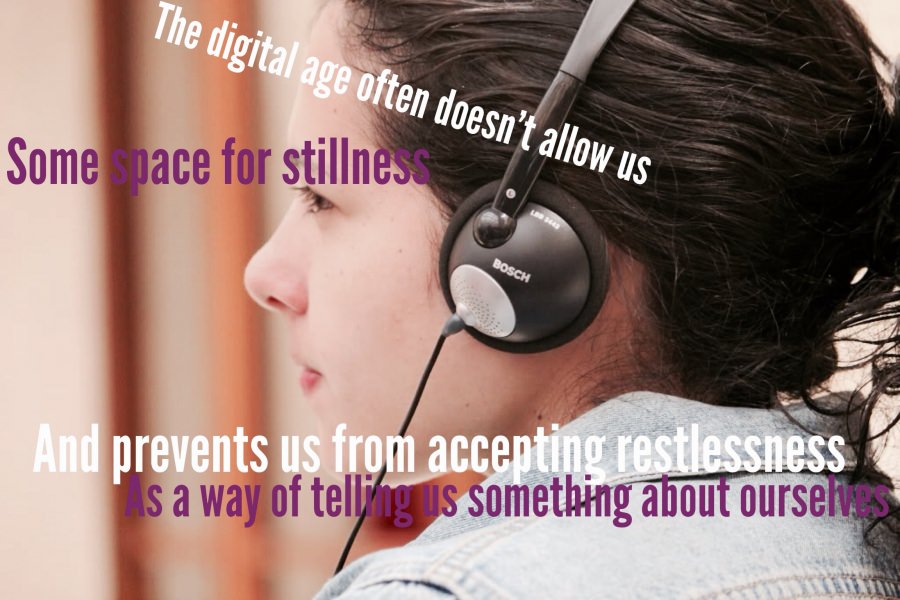 Religious sisters, brothers and priests continue to bring gifts of reflection and pause to the church in a digital world besieged by distraction and increasing anxiety. My work at Catholic Religious Australia (CRA) has shown me this is tangible ways.
Religious sisters, brothers and priests continue to bring gifts of reflection and pause to the church in a digital world besieged by distraction and increasing anxiety. My work at Catholic Religious Australia (CRA) has shown me this is tangible ways.
This realisation was reaffirmed a few weeks ago when I watched a musical concert at my son’s school. I found myself at the back row of a darkened school hall. After an impressive and rousing opening number, I saw a mother a few seats ahead with an iPad switched on, which I assumed was for recording her child’s performance. As we all settled in for the second number, beeping and other sound effects distinctly came from my right side where a child was intently playing a game on his parent’s iPhone about 10 seats away.
As the concert proceeded, parents kept looking at their phones, the mother was still glancing down at her iPad and the child occasionally burst into loud protests at his parents’ attempts to switch the device to quiet mode.
All I could do was sit there and reflect on my own similar habits of checking my smart phone alerts. Like so many others, I have become easily distracted, quick to post my experiences on Instagram, Facebook or Twitter.
One only wonders how younger generations will be able to sit alone with their thoughts or endure sitting through a public performance and in quiet prayer and reflection. What will prayer and church life look like for these digital natives who are born into a world of (soon wearable) highly developed mobile technology?
Several months ago, I read a cover feature from The New Statesman magazine, 'After God: How to fill the God-shaped hole' which probed more deeply into the decline of religion in the West. A few pieces explored prayer – its physical aspect, the role of ritual, the layers of religious memory and tradition that influence our receptiveness to prayer–all fast disappearing. Another article also reinforced the need to unplug and switch off from technological gadgets.
I wonder what traditions and memories younger generations can hold on to, in an increasingly secular world where attendance at mass or spiritual activities is on the decline, where life has become the virtual, rooted in technological gadgetry. Already our destinations, to-do lists, friends, calendars, music, photographs, and entertainment are contained within tech gadgets we carry everywhere. Our hours, days and seasons are now digital footprints: geolocated, mapped, affixed onto a timeline or document.
The digital age doesn’t allow us some space for stillness and prevents us from accepting restlessness as a way of telling us something about ourselves.
I remember the first time I encountered a problem with a newsletter at CRA that I was trying to publish. It was clear that it would be late by a day or two. I frantically informed my boss, a religious Sister who in her Benedictine way assured me that all is well and that I could not do any more than what the situation allowed. It was a relief and a bit of an epiphany, jolting me to reflect on my own demeanour. Do I communicate serenity and loving acceptance in my daily life, especially to my loved ones?
I think the contemplative aspect of consecrated life – also shared by other non-Christian faiths, has so much to offer the Church and the world. Religious men and women in the church are witnesses, keepers and teachers of ritual, prayer and meditation. They nurture in us the prayerful practice to root ourselves in our bodies (not in our virtual life) and to bring our mind to our heart.
To be fair, there is no shortage of apps, podcasts and other online resources to nourish and support prayer life and meditation. These tools help us keep on praying, rather than not. Yet within this media, we still remain switched on. Frederick Buechner once wrote, 'What deadens us most to God’s presence within us, I think, is the inner dialogue that we are continuously engaged in with ourselves, the endless chatter of human thought. I suspect that there is nothing more crucial to true spiritual comfort…than being able from time to time to stop that chatter.'
The importance of switching off is something that religious men and women know all too well. I know it from the placid gentleness, warmth and generosity of religious men and women who have left a deep imprint in my life. Their spiritual practice of listening and devoting complete attention in prayer and in relationship with others remain the simplest yet most powerful and life-changing quality the world needs today.
Gisselle Lapitan is the communications manager for Catholic Religious Australia.